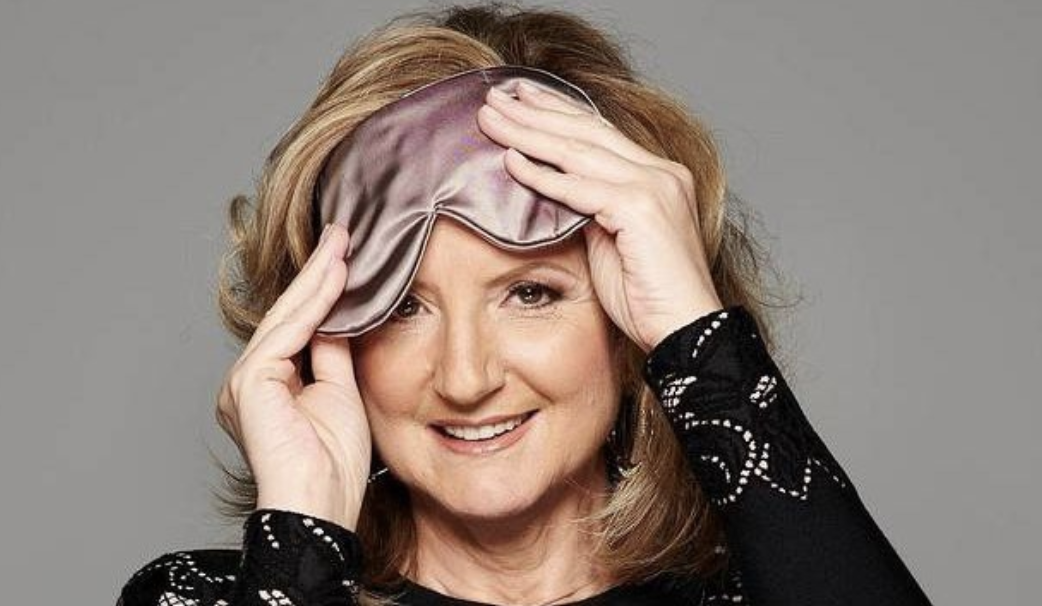We know from the science that all aspects of our well-being are deeply connected: nutrition, exercise, our physical health, our mental health and, especially, our sleep. That’s why I’m so excited to be partnering with Sephora to help you get a better night’s sleep so you can wake up to your best skin and your best self. Thrive Global’s mission is to end the epidemic of stress and burnout by changing the way we work and the way we live — and that starts with sleep. But getting enough sleep in our “always-on,” technology-saturated world is a challenge, and it’s especially hard to change habits when the culture is going the other way. That’s why community is so important and why I was so pleased to answer questions from the Sephora Beauty Insider Community about all things sleep!
1. What can I do during the day, or as a pre-sleep ritual that may help improve my quality of sleep?
This is a great question, because what we do during the day and before going to sleep and the quality of our sleep are very connected. And, as you suggest, it’s important to have a pre-sleep routine to help create separation from the day and condition our minds and bodies that it’s time to begin to wind down. The first (and most important!) thing I do is banish my phone from my room at night and charge it somewhere else. Our phones are repositories of everything we need to put away to allow us to sleep — our to-do lists, our inboxes, the demands of the world — so putting your phone to bed outside your bedroom as a regular part of your bedtime ritual makes you more likely to wake up as fully charged as your phone.
2. Do you suggest using a silk pillowcase and eye mask for sleeping, and what differences can using them make? If so, what’s the best pillowcase to sleep on to wake up to refreshed feeling skin?
I love a great eye mask, especially while traveling. My favorites are the ones that have a little pocket so they’re not lying flush against your eye — this allows you to open your eyes under the mask. I don’t sleep with a silk pillowcase, but I know a lot of people love them and feel like they wake up with less of an extreme case of bedhead, or, worse, bed-face.
3. What are your favorite skincare products to use before bed?
I like adding epsom salts to my pre-bed bath. It makes my skin feel softer and seems to counteract some of the dehydration that results from taking a long, hot bath.
4. Sleep masks have been trending lately and I was wondering if they can really improve my sleep?
There’s certainly a lot of very clear research on the negative impact that light has on our sleep. And a Japanese study last year found a link between exposure to even low levels of light and depression. So a sleep mask is a great answer. Even if you live in a city with a lot of light pollution — like New York, and, increasingly, most large cities around the world — a good mask can give you total darkness even if you can’t bring your bedroom into line.
5. What tips do you have for making it through the afternoon, and past that 3 o’clock wall, without feeling half asleep (besides coffee, haha)?
As the experts say, coffee isn’t a great idea after around 2 p.m. because it can have a half-life in your body of up to six hours. I find that so much of afternoon fatigue isn’t because of lack of caffeine, it’s because of too much time sitting down and staring at a screen. So instead of another shot of espresso, try getting up and walking more — not just in the afternoon, but throughout the day. And if getting up doesn’t do it, I’m also a huge fan of power naps!
6. Are there any tips on how to wake up easily? I always hit the snooze at least twice!
If waking up without repeated snoozes is a problem, then the real problem is that you’re not getting enough sleep the night before. Well-being, of which sleep is the underpinning, is really a 24-hour thing. If we’re in fight-or-flight mode and “always-on” all day long until we hit the pillow for six hours of sleep, waking up is not going to be fun. So the trick to saying goodbye to the snooze button starts with getting enough sleep the night before.
7. I don’t have any trouble falling asleep, I have trouble staying asleep. Any tips/tricks/products I could use?
Before the Industrial Revolution, segmented sleep — sleeping in two periods separated by about an hour or ninety minutes — was very common. It’s called “segmented sleep,” and a lot of people fall into naturally. Sure, adding an hour to your night isn’t always convenient, but there are some ways that experts recommend that can get you back to sleep. Don’t count the minutes or stare at the clock — that’s only going to make you more anxious — and try some breathing exercises, or meditation, which has been shown to help people fall asleep faster.
8. What are your thoughts on CBD and essential oils to support sleep?
Everything we do and recommend at Thrive Global is all about the science — and for CBD there just isn’t yet enough conclusive science one way or the other.
This article was produced by Thrive Global and sponsored by Sephora.


